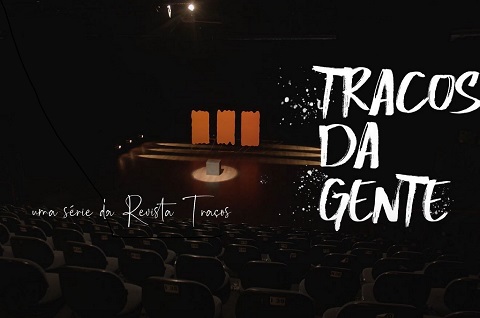By Kazuhiro Hieda, The Big Issue Japan
Mr. K. is an ex-chef in his 60’s who became homeless five years ago. It all started when he quit his job as an itamae [a traditional Japanese chef] and returned to live with his 94-year old mother, who had previously been living alone in an apartment. He cared for and supported his mother, who was starting to lose her ability to walk, until she was admitted to hospital. However, after just three months of living together, she was never to return home again. She used to be the respected manager of an upscale restaurant, but after the financial bubble burst her debts multiplied, and her house was taken as a mortgage payment. Her final days before death were spent on welfare.
After the period of caring for his mother ended, it was Mr K.’s life that was under financial strain. He slept in internet cafés and worked as day laborer until he finally didn’t have enough money to pay for one night’s accommodation. He was lost, and hadn’t eaten or drunk for two days, when he saw guide for how to get out of homelessness at a library.
“I called The Big Issue over the phone, but it happened to be the day when the staff was out of office,” Mr K. says. “They told me to come the next day. I thought ‘Great, one more night’ [laughs]. But in the guide, it stated that if you work, you will get paid, and I didn’t feel any resistance to standing on the street. But I didn’t think it was going to be this hard.”
![Mr K. sells the street paper below the south side escalator on the south exit’s deck of the Takatsuki JR station in Osaka. [Credit: Yoshihiro Kinoshita]](https://hub.insp.ngo/wp-content/uploads/2020/02/BIJ_Our-vendors_Mr.-K_1.jpg)
After graduating from high school, Mr K. always worked as a Japanese restaurant cook. He worked in traditional Japanese ryokan [lodgings] in Kyushu and the Hokuriku area, and he had pride and confidence in himself after having survived in the strict world of a Japanese itamae. However, although an itamae has to endure having no rest during his working day, a street paper vendor has to have a different sort of toughness in terms of having to stand for more than 10 hours in the same spot. But Mr K. has never quit, because even in the times when he felt like giving up, there were some small moments of happiness to be found within those tough times.
“That’s because in this job, you can never tell how many issues you will sell in a day,” Mr K. explains. “One day, you suddenly start selling many; other times, you stand from morning to evening, and can’t even sell one. But in times like those, when you sell one copy, you get so excited. You feel like, “Oh! Finally!” This inexplainable happiness feels like an “out of this world” kind of excitement. It’s like magic. That happiness and emotion can make up for the tough times so that you can keep going for a while longer. But I think that’s the same as in any other job.”
Mr K. currently sells the street paper between 10am and 8pm at the south exit of Takatsuki station. He says that he is invigorated by many people in Takatsuki, such as those who go to the regular The Big Issue reading sessions and those who are fans or supporters of The Big Issue. “What I can do now is stand up with all my heart,” Mr K. says. “Even if I do not sell any copies, I will continue to stand up with a sense of responsibility—and it is important for people to see that I am always standing there.” He pauses. “Actually, at times, it is tough. But if you work hard, I think that you will always reap the rewards.”
![Mr K. sells the street paper below the south side escalator on the south exit’s deck of the Takatsuki JR station in Osaka. [Credit: Yoshihiro Kinoshita]](https://hub.insp.ngo/wp-content/uploads/2020/02/BIJ_Our-vendors_Mr.-K_2.jpg)
Mr K. has been selling the magazine for three years. Given the fact that he is older, there is a risk that selling The Big Issue may become his only means of financial support.
Despite this, he remains passionate about the magazine that has helped him so much. “Recently, I’ve been thinking about how to sell more copies of The Big Issue,” Mr K. says. “I don’t want this magazine, which has saved me, to disappear. I think there will definitely continue to be people who will need its help, and I want this company to be a place where these people can come out of their shells and challenge themselves. I think the company is currently in a phase in which it is being asked how it can change.”
Finally, when he is asked about his goals, Mr K. tells me that he wants to use his skills as an itamae and says that his dream “is to start a restaurant that gives back to the community.” His dream is to have a restaurant where, for example, he can donate some percentage of the takings to the community, or where one day per week a free dinner is provided for children. “My old self wouldn’t have thought about society and wouldn’t have thought about doing something for someone else,” Mr K. smiles. “I think this is all thanks to The Big Issue.”
Translation from Japanese is Emiko Yoshimatsu




















